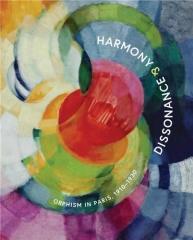Orphism emerged among a cosmopolitan group of artists active in Paris in the early 1910s, as the innovations of modern life radically altered conceptions of time and space. Engaged with ideas of simultaneity in kaleidoscopic compositions, these artists investigated the transformative possibilities of color, form, and motion. In their work, they often featured disks of brilliant color and evoked multisensory experiences. When pushed to its limits, Orphism signaled total abstraction. A Paris-based contemporary, the vanguard poet and art critic Guillaume Apollinaire, invented the term 'Orphism''a nod to Orpheus, the Greek mythological bard and lyre player, whose music thwarted death'to describe this physically and spiritually transcendent abstract art.
The first comprehensive examination of the Orphist avant-garde, this revelatory exhibition catalogue traces Orphism's roots, explores its cross-disciplinary reach, and considers its transnational reverberations across sixteen illustrated texts by a multigenerational roster of authors from various fields. In-depth essays offer new perspectives, delineating Orphism's connections to dance, music, and poetry, and analyzing the historical and cultural circumstances that shaped its ethos. More than ninety artworks in multiple mediums are punctuated by micro-narratives that view select artists through the Orphist lens, illuminating the lives and ideas of established and lesser-known figures alike, including Robert Delaunay, Sonia Delaunay, Mainie Jellett, Frantisek Kupka, Francis Picabia, Morgan Russell, and Amadeo de Souza-Cardoso.

(0 Comentarios)